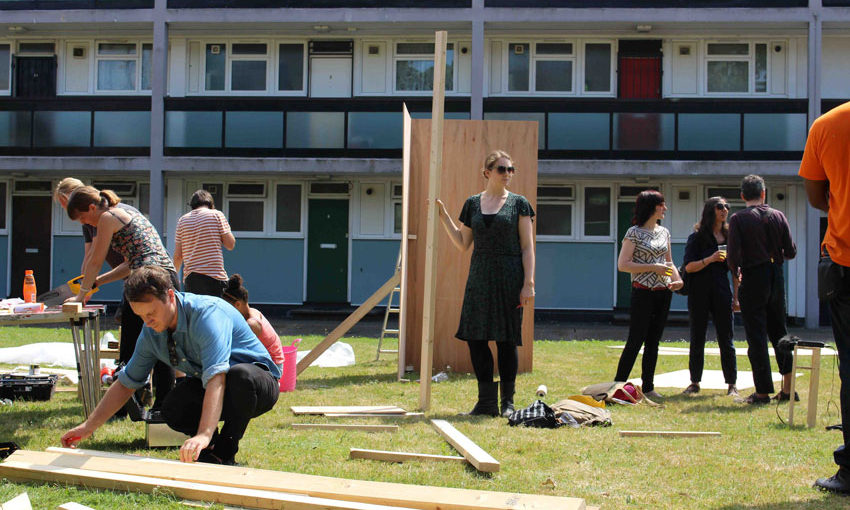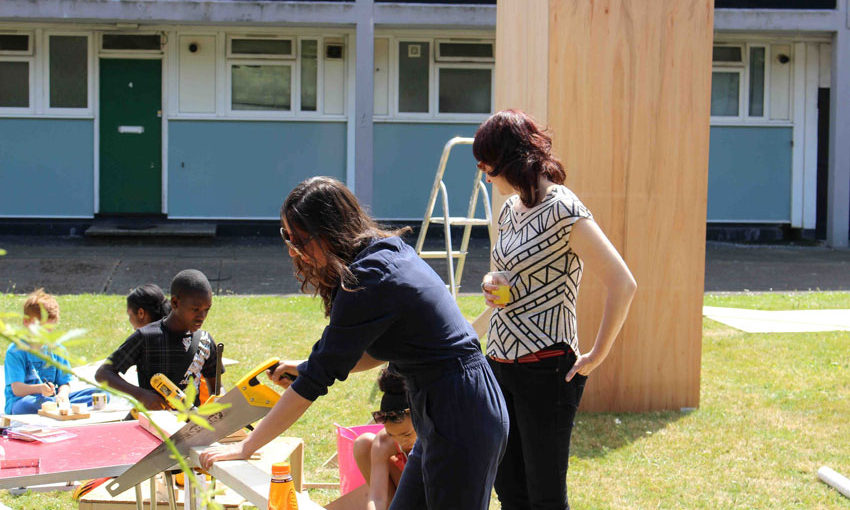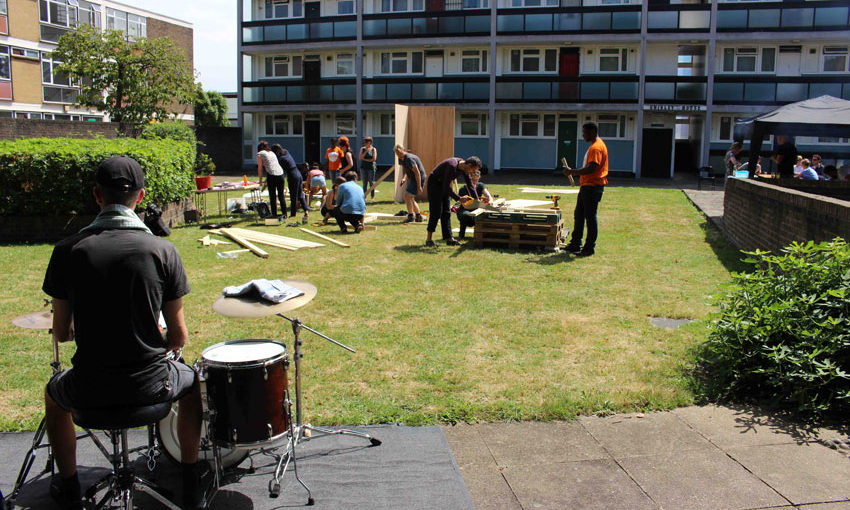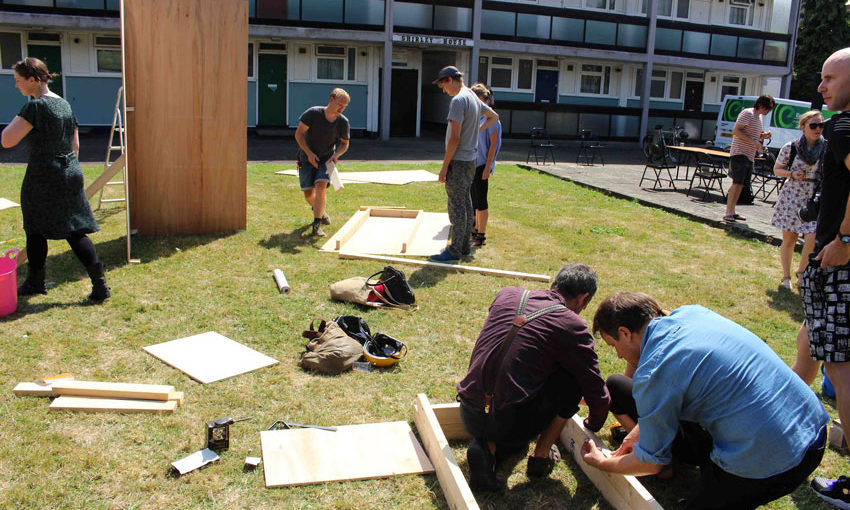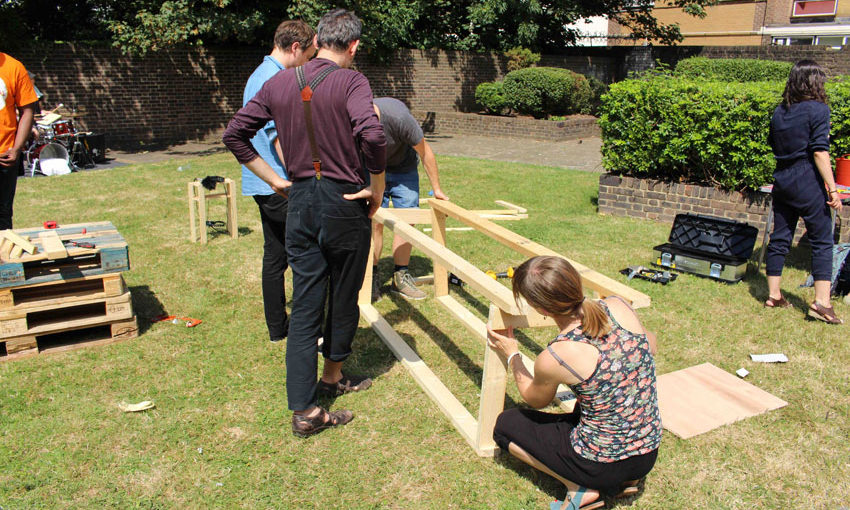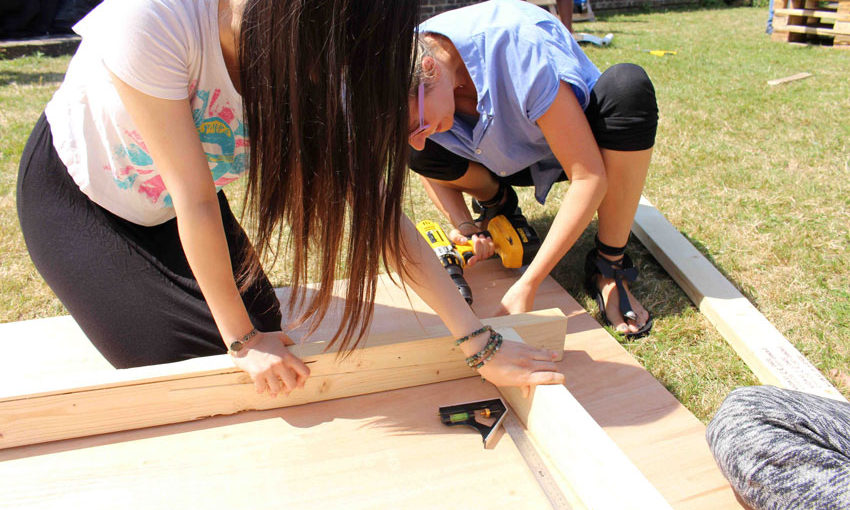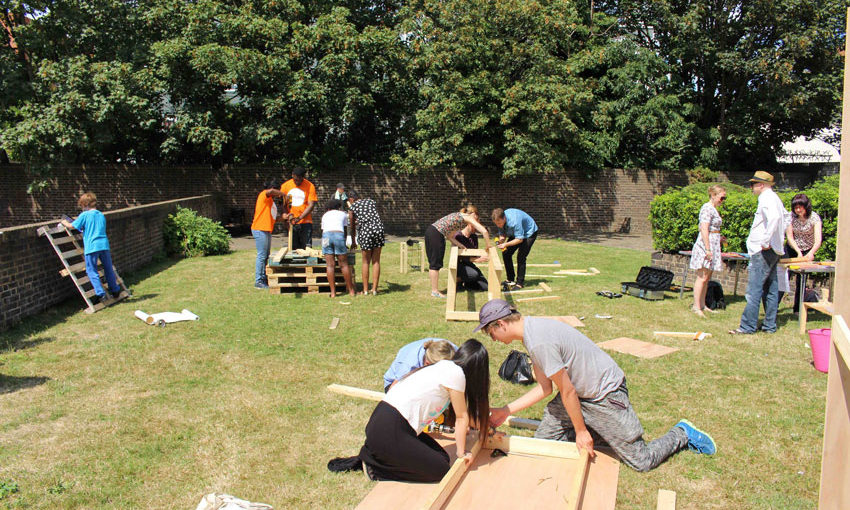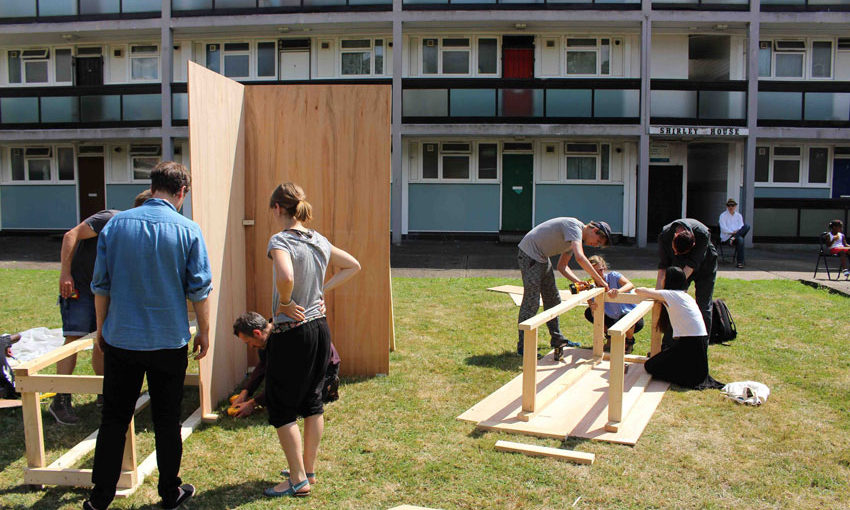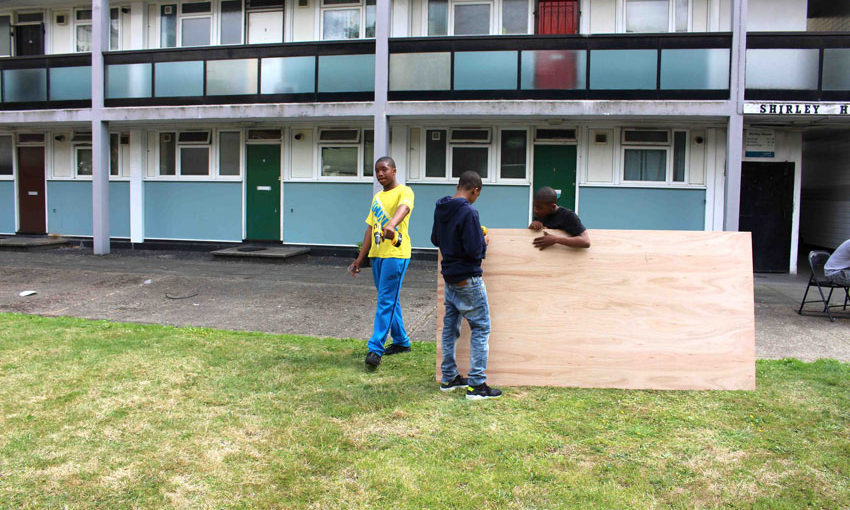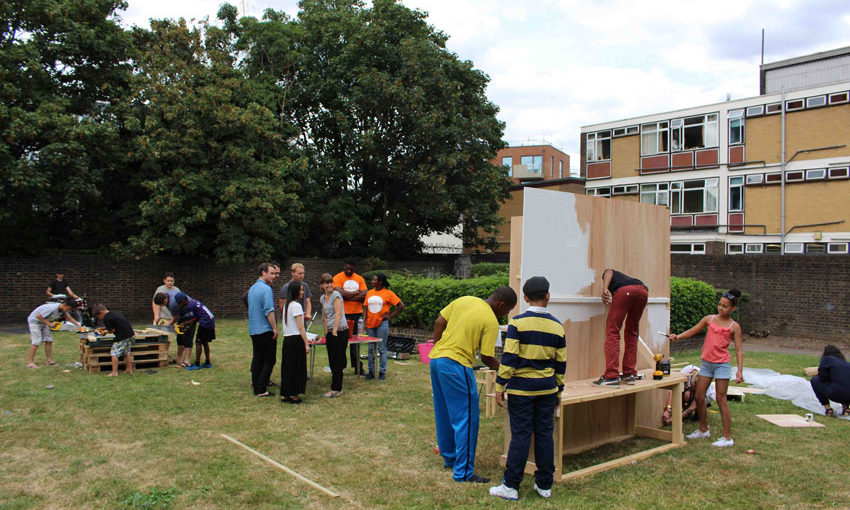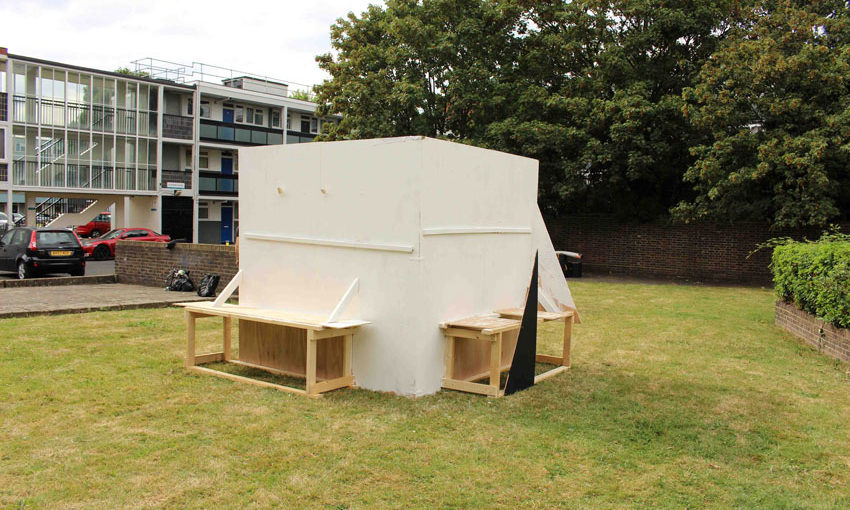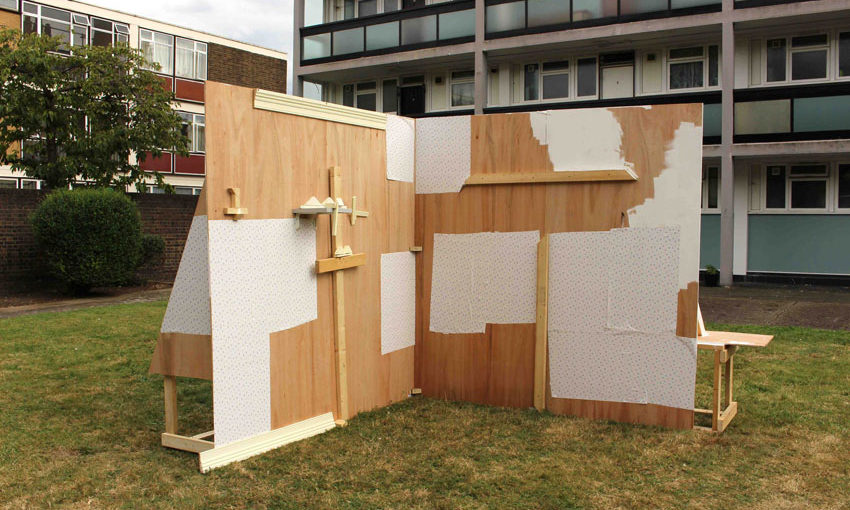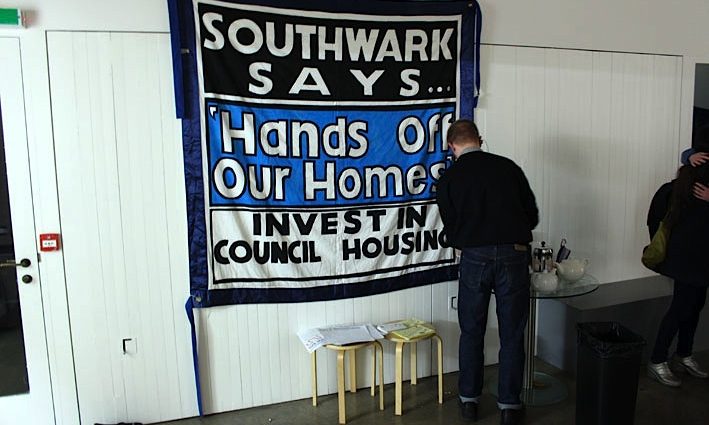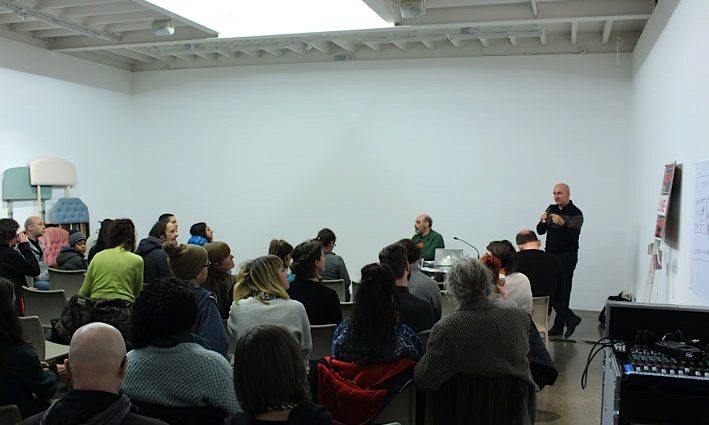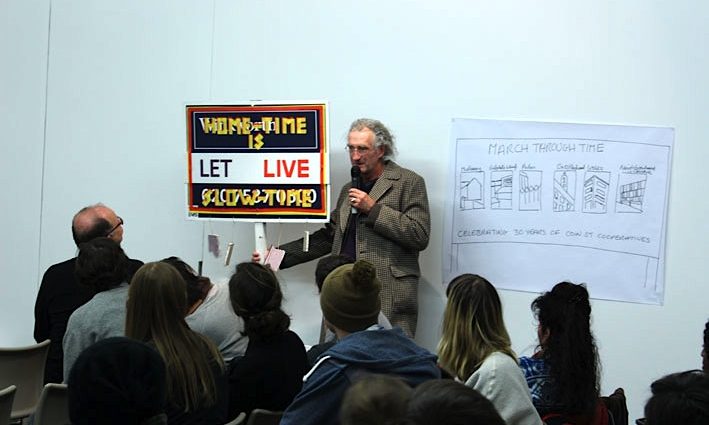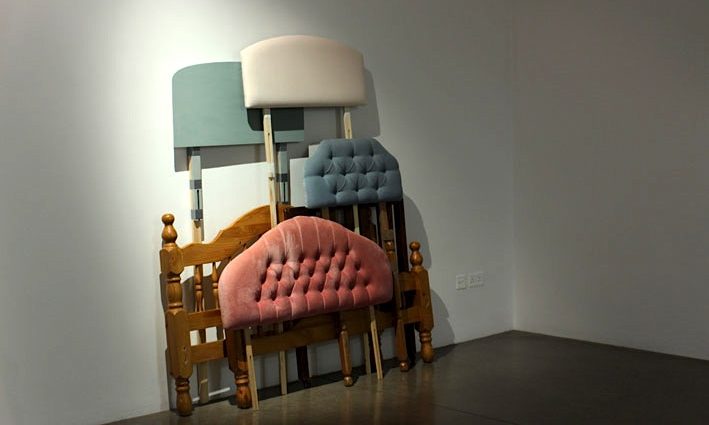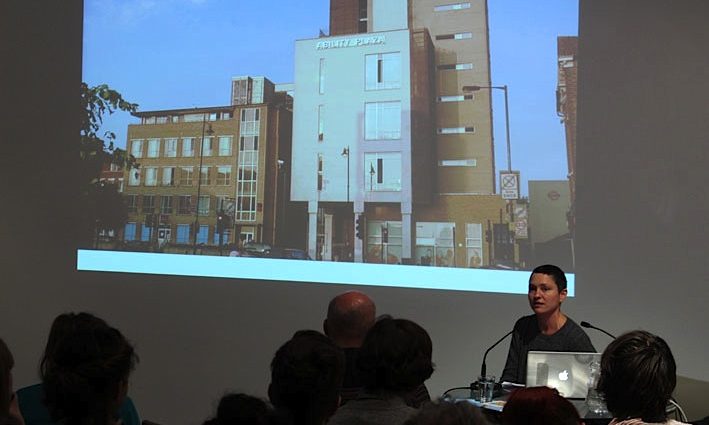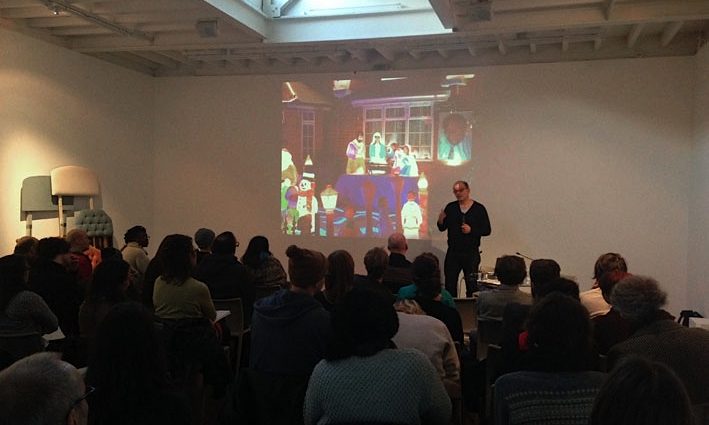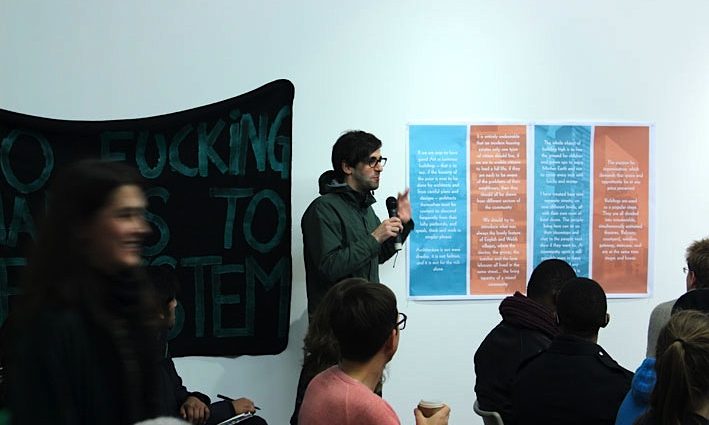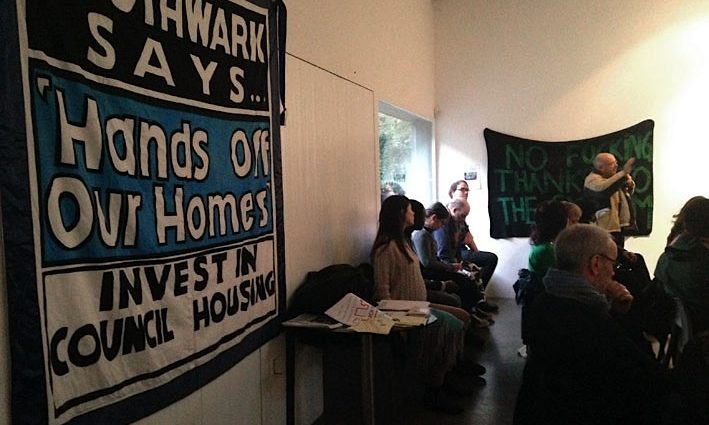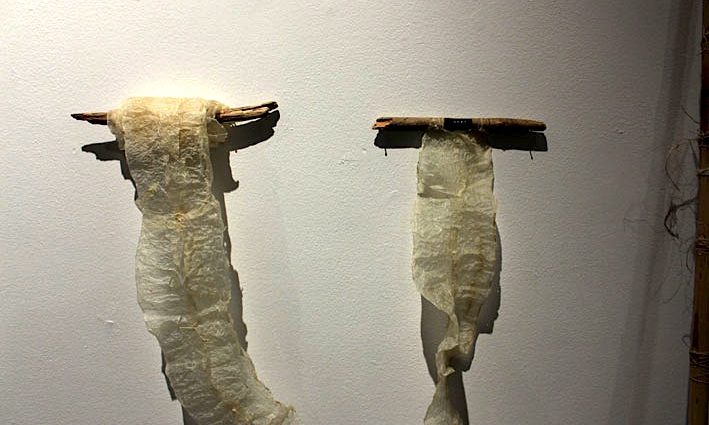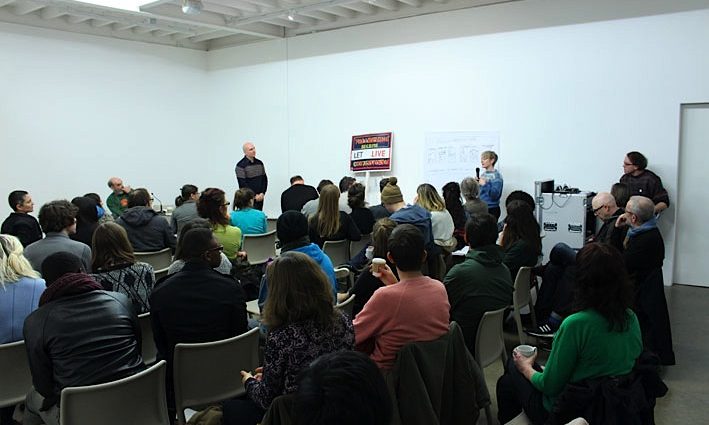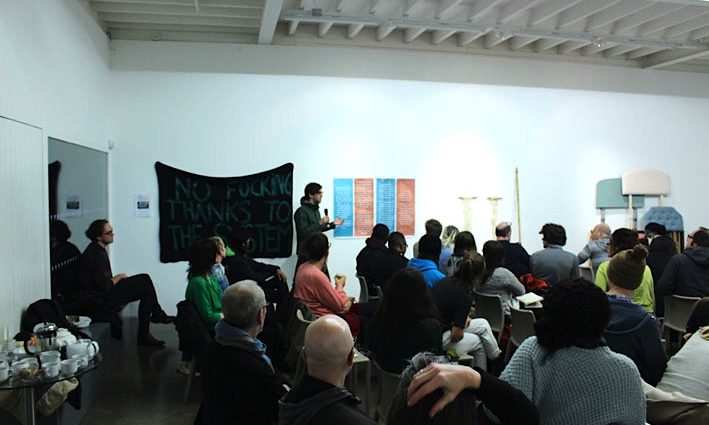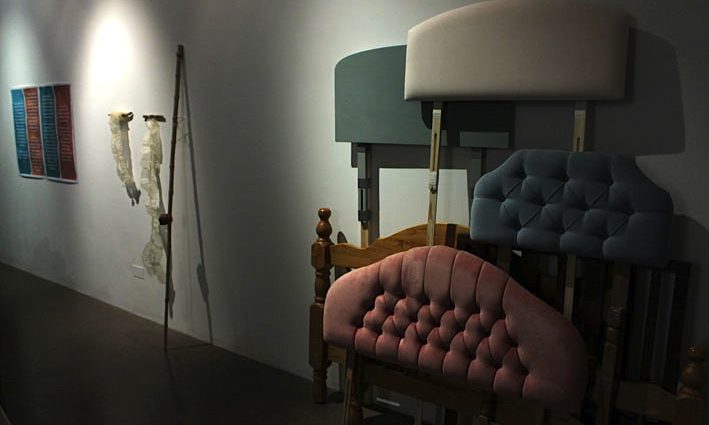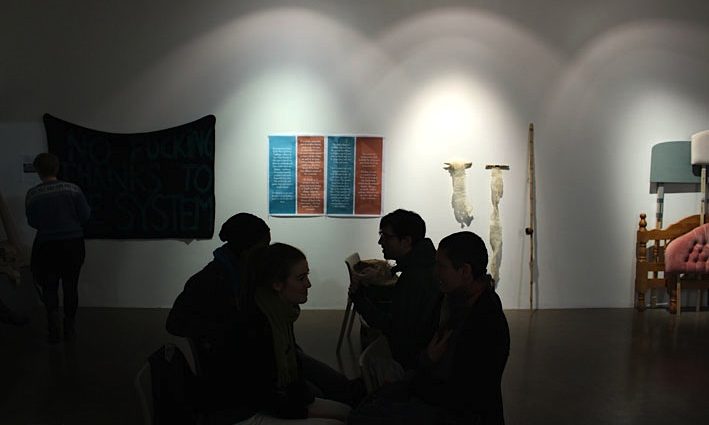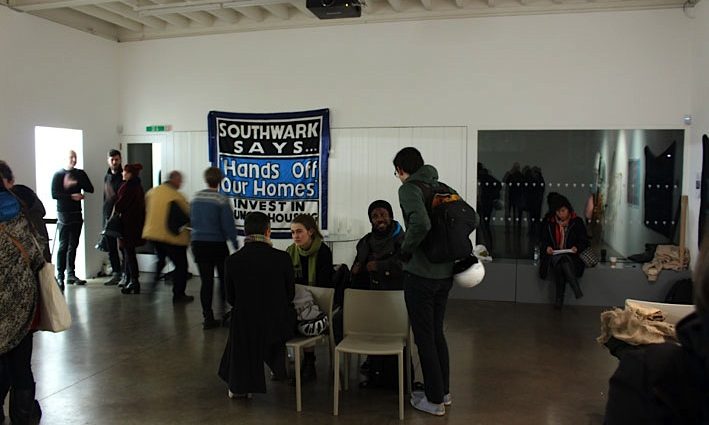The Sixth Housing Estate
2014
As the culmination of a residency in summer 2014 at the South London Gallery, a public event was organized on the grounds of the Elmington Housing Estate, near to the Gallery. The event was structured as a participatory self-build action, inviting local residents, artists, researchers and musicians to work together on the construction of a fragment: two walls standing freely, and giving suggestion for a domestic space yet to come. The event also involved the participation of drummer Paul Abbott, who performed in relation to the actions taking place: listening, following, improvising and intervening, with a rhythmical shadowing. My interest was to create a situation of co-operation, focusing visitors on the materials and forces embedded within the very property of the home – to expose and make available the procedures of “making home”. The event lasted for three hours, at the end of which the fragment was deconstructed.
Elmington Housing Estate, London / July 2014
Every wall has two sides
Related seminar on the theme of neighbors and strangers
with presentations by:
Les Back
Ari Henry
Brandon LaBelle
Andrea Luka Zimmerman
Saturday, December 6th, 2014, 14:00h
South London Gallery
with additional contributions by: Frans Jacobi, Richard Launder, Isik Knutsdotter, David Roberts, and Nicky Hirst, Claudia Firth with residents from Coin Street Housing Coops
Public housing expresses a primary perspective, that of the right to an adequate domestic life. Yet it also gives expression to a notion of community and neighborliness, putting us side by side in a model of being together. The individual home is not only one’s own, but an articulation of shared space. The threat to public housing disavows the right to a secure home as well as the belief in community as a public good. In contrast, housing may crucially appear as a form of commonwealth, and the sharing between neighbors a form of social encounter.
Developed as part of Brandon LaBelle’s ongoing research project, The Sixth Housing Estate, initiated in the summer of 2014 at the South London Gallery, this public seminar asks how might the public good of community model itself against the political and economic backdrop of privatization? Is it possible to probe the tensions and discrepancies between public and private life, to pry open new spaces for informal, intimate and surprising exchanges that pass between walls? Can we envision a creative arena for fostering models for more inclusive experiences of sharing and well-being, ones that may also undo or amplify the urgencies of contemporary life?
The seminar considers these questions of housing, and of shared space, with a focus on “neighbors and strangers”. This may lead us toward a sense for the emotional landscapes shaped through what Édouard Glissant terms the “opacity” of worldliness, and the affective labors by which we search for social bonds.
